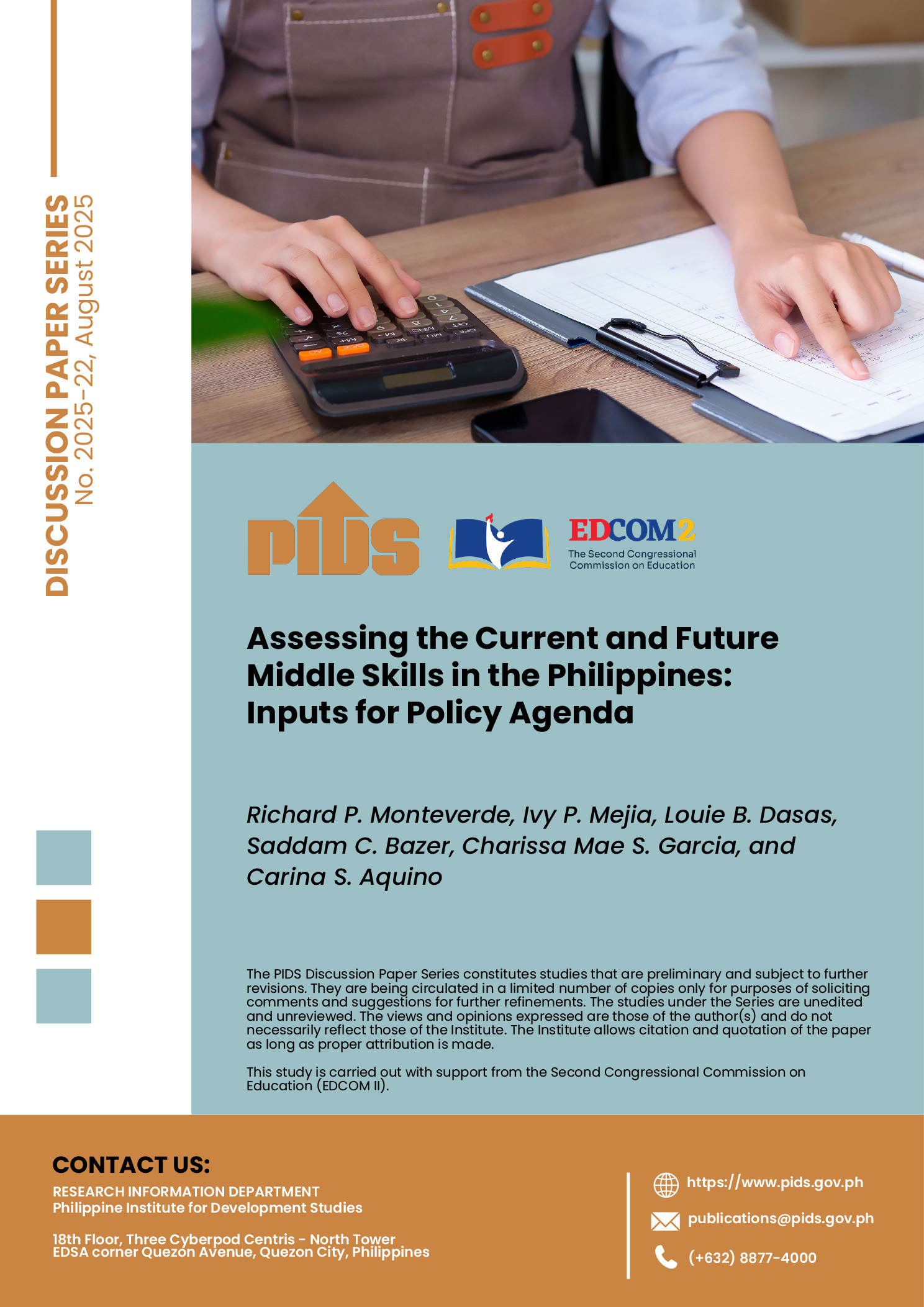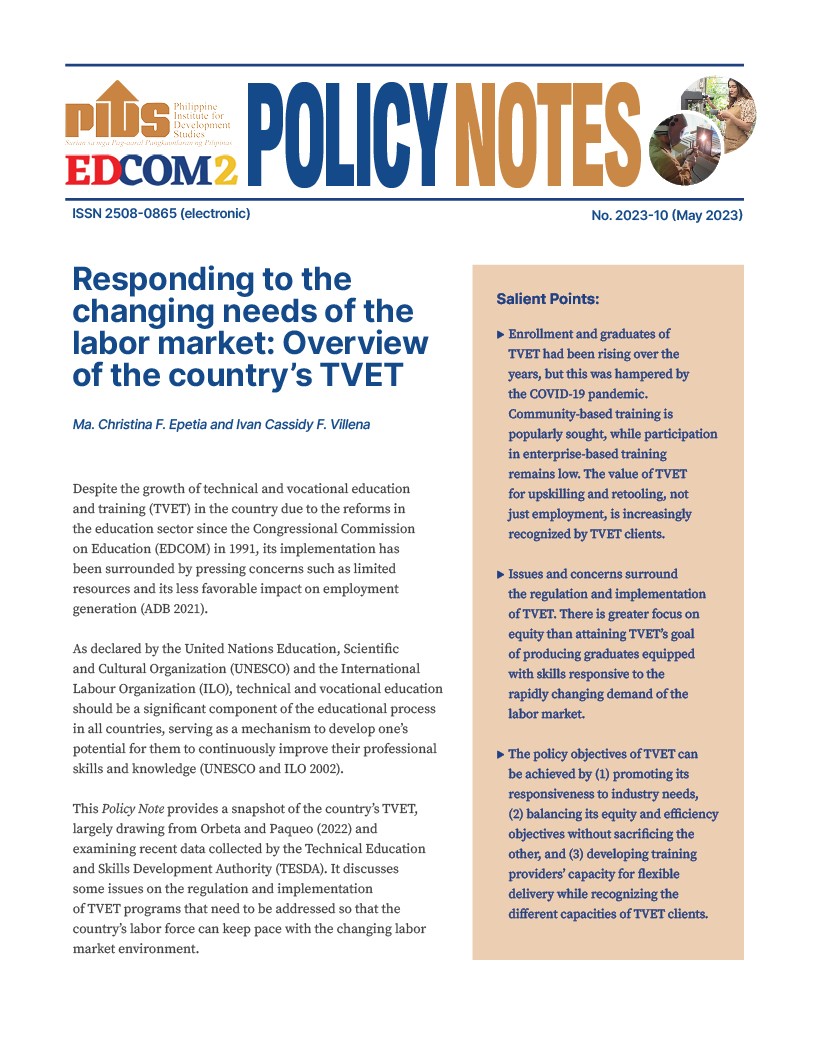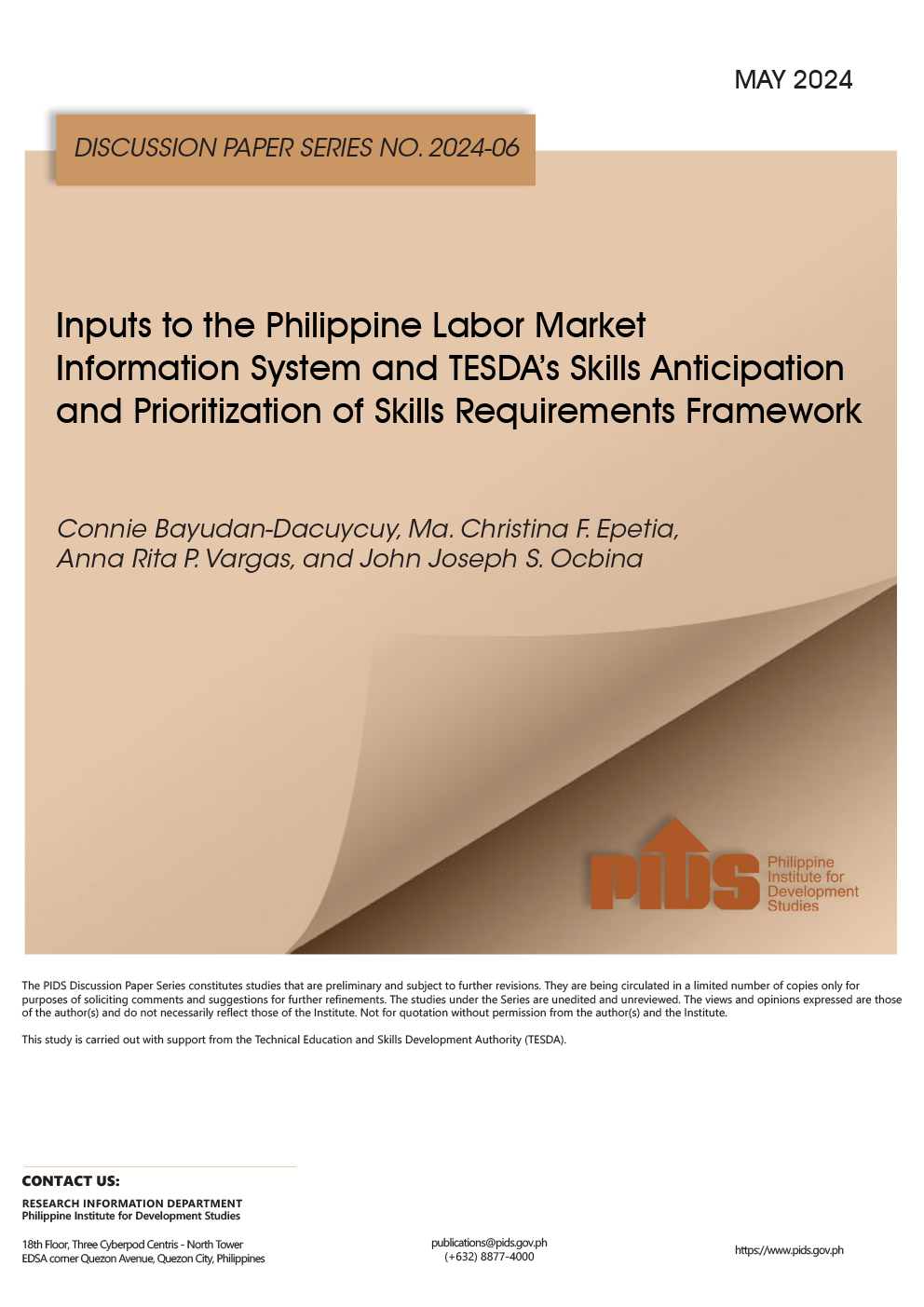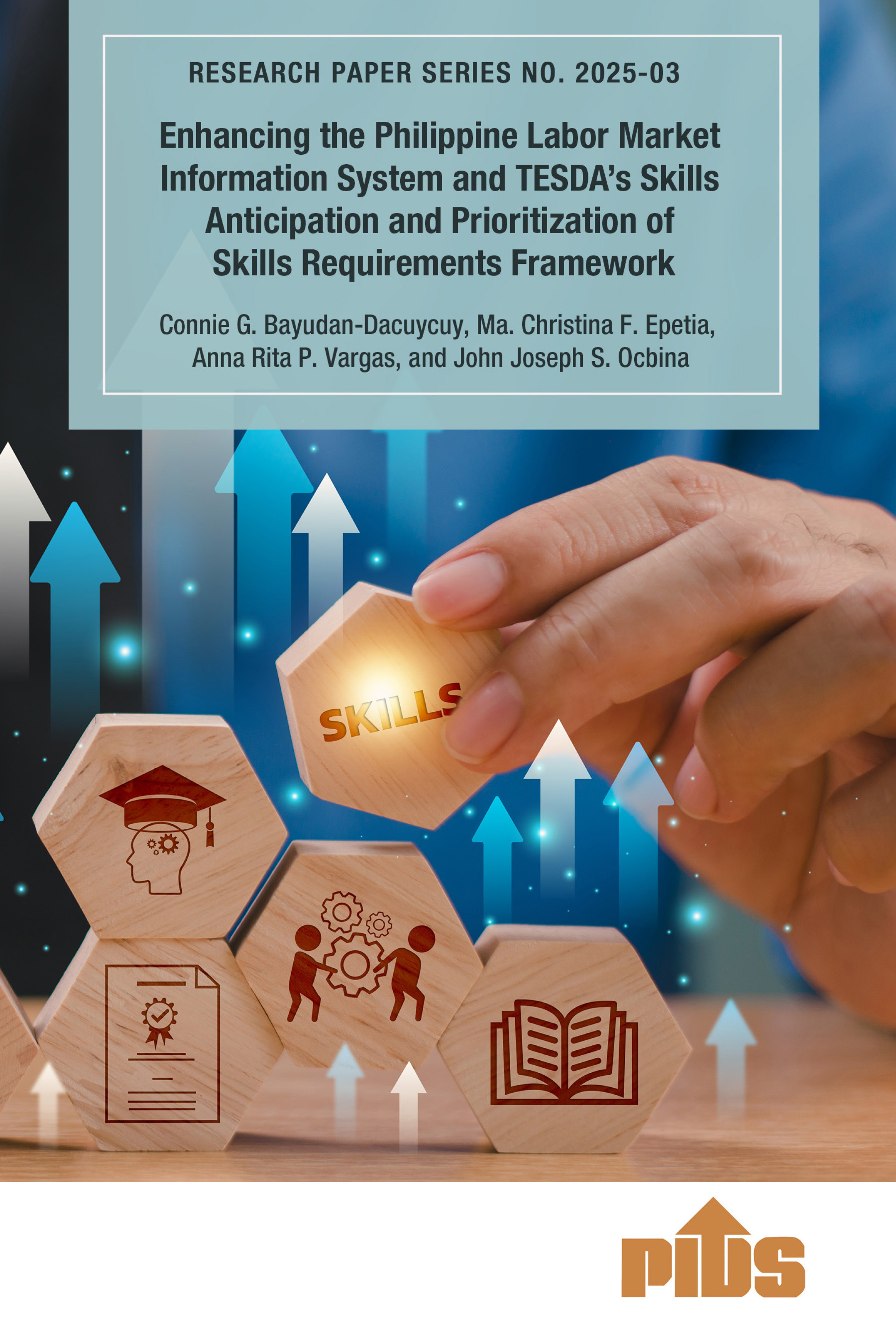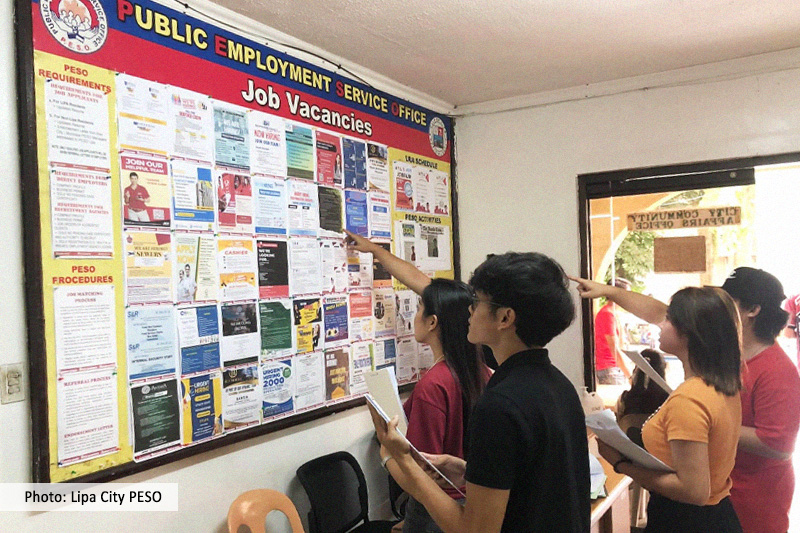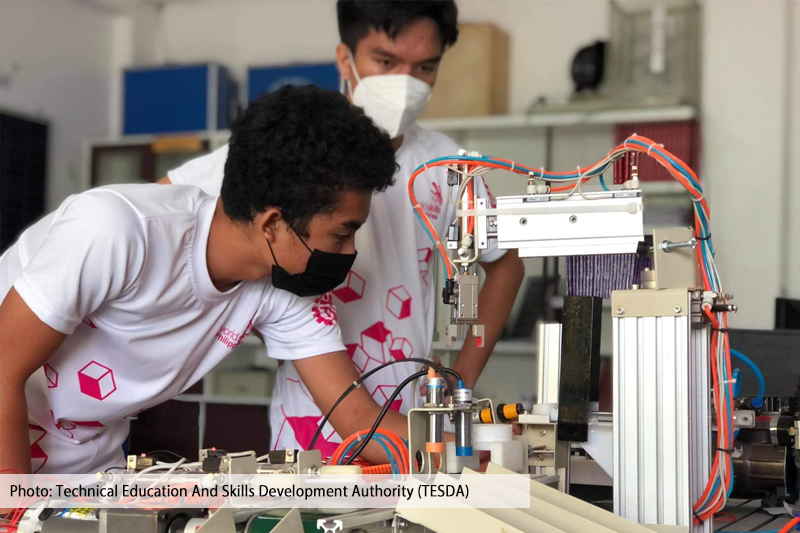This study explores the conceptualization and operationalization of middle skills within the Philippine context, examining how various institutions define and implement middle-skills training. It also assesses the alignment of these training programs with workforce demands, particularly in relation to the priority sectors identified in the Philippine Development Plan 2023-2028. Employing a multi-method qualitative research design, the study integrates data from the Philippine Statistics Authority’s Labor Force Survey, focus group discussions, and key informant interviews with Technical and Vocational Education and Training practitioners and government stakeholders. Quantitative analysis reveals that Level 5 postsecondary graduates often outperform some Level 6 bachelor’s degree undergraduates in both employment rates and salary levels, demonstrating the viability of middle-skills pathways that do not require a four-year degree. However, qualitative findings highlight a fragmented understanding of middle skills across sectors, which undermines policy coherence and limits the effectiveness of training initiatives. The study also identifies a disconnect between existing curricula and the evolving demands of the labor market, further compounded by inadequate stakeholder engagement. These findings suggest that, in the absence of a unified definition and structured policy framework, middle-skills training risks obsolescence in the face of technological change and shifting economic conditions. A sustainable pathway, beginning in elementary education and continuing through vocational training, offers a practical and accessible route to employment and economic participation. The study emphasizes the need for a strategic, data-driven approach supported by robust policy coordination, multi-sector collaboration, and a responsive training ecosystem. A comprehensive reform agenda is urgently needed to ensure that middle-skills development contributes meaningfully to workforce adaptability, innovation, and national competitiveness. Future research should examine the long-term impact of middle-skills training on employment trajectories, productivity, and economic resilience.
Comments to this paper are welcome within 60 days from the date of posting. Email publications@mail.pids.gov.ph.

